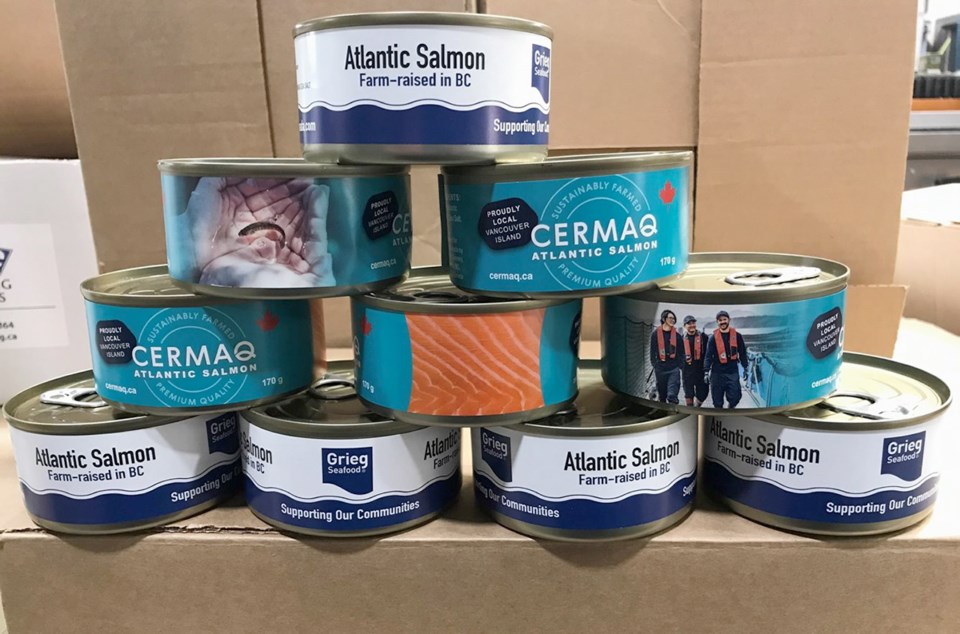B.C. food banks are receiving 60,000 pounds of donated farmed salmon to help people in need on Vancouver Island and on the mainland as demand rises during the virus pandemic.
Laura Lansink, executive director of Food Banks B.C., said they’re grateful to B.C. salmon farmers for stepping up, particularly at a time when food — and especially protein — is in short supply.
“I have been with Food Banks B.C. for almost a decade and I have never received a donation like this before,” Lansink said Monday, noting protein donations are rare.
“This donation will make a tremendous impact on the individuals, families and children who simply can’t always afford to put food on their tables.”
The B.C. Salmon Farmers Association has teamed up with Food Banks B.C. to distribute the fish, which will provide about 200,000 meals. Many B.C. fish farms operate in the waters around Vancouver Island.
Participating companies include Cermaq Canada, Grieg Seafood B.C., Mowi Canada West, Creative Salmon and Golden Eagle Aquaculture.
Every month, B.C. food banks serve close to 100,000 people. But amid the pandemic, with thousands of people out of work, donations are down and some people who were donors are turning to food banks themselves, Lansink said.
In some locations, numbers turning to food banks have doubled.
The bulk of the donation will be canned on Vancouver Island by St. Jean’s Cannery and Smokehouse in Nanaimo. (To decrease handling, food banks are increasingly moving toward pre-packaged foods.) St. Jean’s is expected to produce 86,000 cans in all.
Aquatrans Distributors Inc. is donating most transportation costs to carry the salmon to St. Jean’s and then to five B.C. food bank hubs for distribution.
Cermaq is donating 30,000 pounds of salmon, which will go into 62,000 cans.
David Kiemele, managing director of Cermaq Canada, said many families are feeling the impact of the pandemic.
“Being identified as an essential service by both the federal and provincial governments, we are fortunate to be able to continue forward with our farming and are responsible for supplying the markets and families with salmon during this time of change and uncertainty,” he said.
Grieg’s donation translates into 24,000 cans.
Dean Dobrinsky, Mowi spokesman in Campbell River, said the company is donating 1,120 pounds of Atlantic salmon per week to nearby food banks and to local Salvation Army kitchens. Their fish is going to Port Hardy, Port McNeill and Campbell River outlets and most will be in the form of fresh fillets.
Mowi has also partnered with Hardy Buoys Smoked Fish of Port Hardy to produce the salmon portions for weekly delivery during the crisis and to make salmon jerky for distribution, as well, he said.
“We are in this pandemic together,” Dobrinsky said.
For close to a decade, Mowi has worked with about 25 charities in the North Island to raise money at barbecues by selling donated salmon.
Creative Salmon, which raises farmed organic Chinook salmon off the west coast of Vancouver Island, is donating canned salmon to food-distribution services in Tofino and Ucluelet.
Golden Eagle Aquaculture in the Lower Mainland is donating multiple cases of canned land-grown coho salmon as well.



